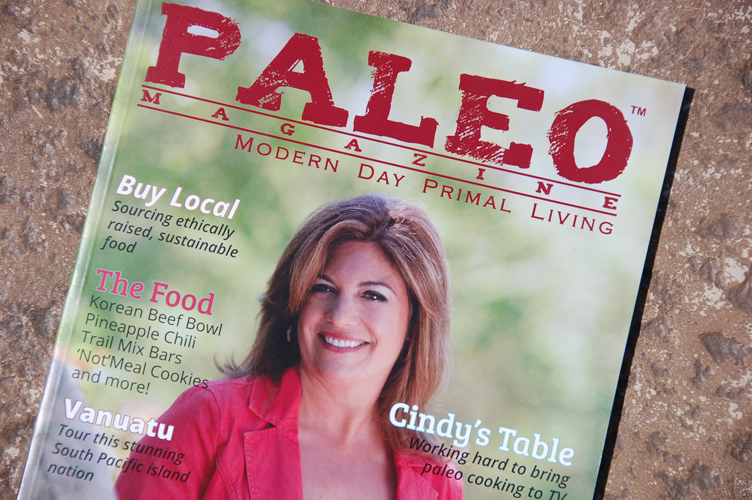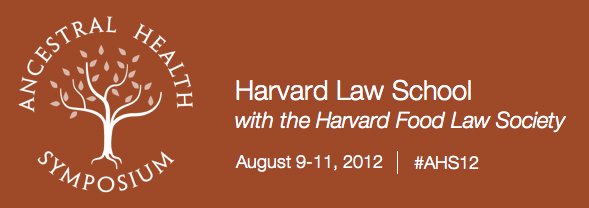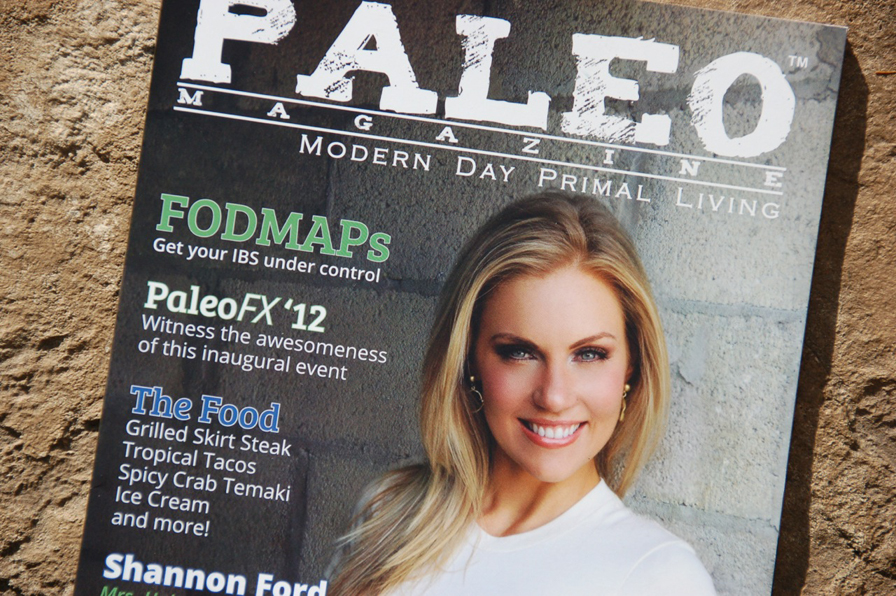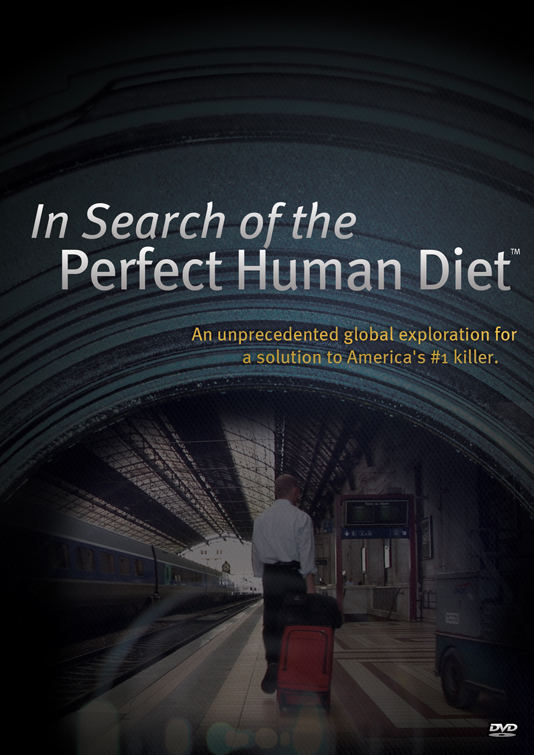Entries in caveman diet (11)
New hypothesis: Acellular carbohydrates promote obesity
 Saturday, August 11, 2012 at 09:25PM
Saturday, August 11, 2012 at 09:25PM Ian Spreadbury of the Gastrointestinal Diseases Research Unit, Queen's University, Kingston, Ontario, Canada published “a novel hypothesis of obesity” in the May 2012 issue of Diabetes, Metabolic Syndrome and Obesity: Targets and Therapy. (Abstract & PDF link)
He compares the cellular carbohydrates of the ancestral diet with the acellular carbohydrates of “flours, sugars, and processed foods.” The key issue is carbohydrate density:
Due to being made up of cells, virtually all "ancestral foods" have markedly lower carbohydrate densities than flour- and sugar-containing foods, a property quite independent of glycemic index.
Replacing refined grains with whole grains doesn’t seem to help much:
Whole grains are mooted to be healthier than refined grains, yet comparisons between grain consumption habits in industrialized societies indicate the effects of replacing refined grains with whole grains yield only modest improvements to health.
The dense acellular carbohydrates of modern foods may trigger obesity (known to be associated with low-level inflammation) by inflamming the GI track:
The present hypothesis suggests that in parallel with the bacterial effects of sugars on dental and periodontal health, acellular flours, sugars, and processed foods produce an inflammatory microbiota via the upper gastrointestinal tract …” (emphasis added)
A diet of grain-free whole foods with carbohydrate from cellular tubers, leaves, and fruits may produce a gastrointestinal microbiota consistent with our evolutionary condition, potentially explaining the exceptional macronutrient-independent metabolic health of non-Westernized populations, and the apparent efficacy of the modern "Paleolithic" diet on satiety and metabolism.” (emphasis added)
Paleo Magazine Aug/Sept issue at newsstands
 Saturday, August 11, 2012 at 04:29PM
Saturday, August 11, 2012 at 04:29PM 
After 20 plus years in the computer software industry, I decided to pursue my passion for cooking with the launch of Cindy's Table, a personal chef and catering business based in the Greater Hartford, CT area.
Soon after my first introduction to Paleo, my doctor recommended I take medication to manage my high cholesterol. I refused and committed to the Paleo diet for 6 months to see if my cholesterol levels would respond. I was determined to try it, despite my doctor's objections and it was one of the best decisions I've ever made.
Cindy Anshutz
Paleo Magazine
Ancestral nutrition to get its own journal
 Tuesday, July 10, 2012 at 03:17PM
Tuesday, July 10, 2012 at 03:17PM 
There has been a steady increase in awareness and adoption of ancestral nutrition (Paleo diet) during the past few years. We have an array of websites, books, cookbooks, a recent movie (In Search of the Perfect Human Diet), a new magazine Paleo Magazine, and coming up, the second annual Ancestral Health Symposium to be held in Cambridge, Massachusetts this August. The conference has been fully registered for several months. (See the Symposium Program here.)
The Ancestral Health Society is now announcing plans for a new scientific journal:
In addition, the society plans to host a peer-reviewed journal for publication of experimental and clinical research and theory on human health from the evolutionary/ancestral perspective. This journal is in the process of being founded.
Ancestral nutrition is on the move.
Paleo diet "the way of the future"?
 Saturday, June 16, 2012 at 09:37PM
Saturday, June 16, 2012 at 09:37PM I recommend this excellent summary of the Paleo diet written by George Dvorsky of iO9. Referring to the rising rates of obesity, diabetes and other modern diseases, Dvorsky declares an increasingly apparent observation: "When it comes to our eating habits, it's clear that we're doing it wrong."
Part of the problem is that virtually everything we thought we knew about eating is wrong; the current health crisis is in no small part caused by widespread and pervasive food confusion - and much of driven and reinforced by the modern food industry. As counterintuitive as it might seem, we now know that saturated fats are good and that salt has been unfairly vilified. It's becoming apparent that whole grains are extremely unhealthy, and that sugar is far, far worse than we previously thought, a conclusion that has led some experts to essentially describe it as poison.
Consequently, a new approach to eating has emerged called the Paleolithic Diet, or simply "Paleo" for short. Advocates of this diet focus on eating unprocessed foods like lean meat, seafood, roots, tubers, fruits, and vegetables. Not only are these foods comprehensible to the human digestive system, they pack much more nutrition per calorie than typical Neolithic and processed foods.
The increasing interest in Paleo nutrition is evidenced by the growing number forums including the Ancestral Health Symposiums where:
.... a niche group of scientists, medical practitioners, and health experts are paving the way for what is likely to become a health and wellness paradigm for the future.
Paleo Magazine in natural foods stores
 Friday, June 15, 2012 at 09:13PM
Friday, June 15, 2012 at 09:13PM 
On the way home after giving an evening lecture across town, I stopped by a Whole Foods Market along the way for some dinner. In the magazine rack next to the cashier, I was surprised to see a copy of Paleo Magazine. Launched in May 2011 by publisher and editor Cain Credicott, the magazine features contributions from the Paleo/Primal community.
In addition to Whole Foods Market, Paleo Magazine is available at Sunflower Market, Clark's Natural Foods, and Earth Origins Market, among others. To see if the magazine is available your area, try the Paleo Magazine Store Locator.
Review Part 2: In Search of the Perfect Human Diet
 Saturday, April 21, 2012 at 08:46AM
Saturday, April 21, 2012 at 08:46AM In the April 15 SUNDAY PALEO, I reviewed the first half of a new documentary, In Search of the Perfect Human Diet, by CJ Hunt. We left off with Hunt visiting Dr. Cordain and learning about the evolution of the human diet over the past two million years while they both walked down the football field at CSU in Fort Collins, CO.
Continuing his search, Hunt then travels to New York to interview physical anthropologist Gary J. Sawyer of The American Museum of Natural History. From Sawyer, Hunt learns about our Paleolithic ancestors and how they lived. When comparing the modern diet to that of our ancestors, Sawyer observes:
We do not know how to eat properly. We feed ourselves, but we fail to give ourselves proper nutrition.
While in New York, Hunt also interviews Leslie Aiello, PhD, of the Wenner-Gren Foundation for Anthropological Research. Dr. Aiello reminds us that our Paleolithic hunter-gatherer ancestors, in contrast to our limited palate today, ate “a huge diversity of foods.” The reduced diversity of our diet following the agricultural revolution led to nutritional deficiencies that caused a reduction in our stature: modern humans are much smaller than the Paleolithic ancestors.
Later in his travels, Hunt visits the Max Plank Institute for Evolutionary Anthropology in Leipzig, Germany to meet Professor Mike Richards, a specialist in prehistoric bone chemistry. This remarkable segment reveals what state-of-the-art techniques are telling us about the evolution of the human diet. We now have direct evidence of the components our ancestors' diet and the important role of meat, fish, and plants in human nutrition. Interestingly, no vegetarians have been identified in the bone analysis of thousands of human ancestors studied from all over the world.
According to Dr. Richards, our current age, the Neolithic, “is a new experiment,” one that we are not adapted to. Is the Paleolithic diet the “most optimum” for humans?
It has to be, it’s what evolutionary pressures got us towards and we were successful in that kind of diet. It’s got to be the best diet for humans.
The video ends with a section on the clinical application of this newly developing knowledge. In Wimberley, Texas, Hunt interviews Dr. Lane Sebring, a physician who is clearly knowledgeable on role of the ancestral diet in medicine. Dr. Seabring discusses how he advises his patients and then takes Hunt to a nearby grocery store to show how easily we are marketed “foods” that undermine our health.
In Search of the Perfect Human Diet is an excellent “crash course” on the ancestral diet. Available on DVD, I recommend it to anyone wanting to take control of his or her nutrition from the surrounding culture. The movie is enlightening for those new to this nutritional approach as well as for those with years of experience.
For health care providers, it provides a new approach to helping people suffering from many chronic disorders. As the CDC reminds us, ¾ of U.S. health care spending is directed at preventable modern diseases and these costs continue to increase. The ancestral diet may prove to be a powerful tool to reverse this trend.
Ancestral Diet Resources
 Thursday, March 29, 2012 at 09:51AM
Thursday, March 29, 2012 at 09:51AM The ancestral diet, also known as Paleo or primal diet, is an approximation of the original diet of our ancestors living before the development of agriculture and animal husbandry that occurred around 10,000 years ago. They usually ate lean meats, fish, fruits, vegetables, nuts, and berries. Studies reveal that our ancestors were taller and healthier than many people living today. Below are some books, websites, and a DVD to help you learn about this new (and yet very old!) dietary lifestyle.
BOOKS
The Paleo Diet: Lose Weight and Get Healthy by Eating the Foods You Were Designed to Eat (2010) - Dr. Loren Cordain is a top expert on the nutrition of our ancestors. This book should serve as the main gudie for the Paleo diet.
The Paleo Answer (2012) - Dr Cordain’s new book provides more detail and answers common questions about the Paleo diet.
The Paleo Diet Cookbook: More than 150 recipes for Paleo Breakfasts, Lunches, Dinners, Snacks, and Beverages by Loren Cordain, Nell Stephenson, and Lorrie Cordain.
Primal Blueprint Quick & Easy Meals. This primal cookbook was written by Mark Sisson and Jennifer Meier.
WEB SITES
Marks Daily Apple – this very popular site covers diet, fitness, and other aspects of primal health. Check the Success Stories link, especially The Unconquerable Dave.
Everyday Paleo – this popular site by Sarah Fragoso has plenty of recipies. Sarah is also the author of the Everyday Paleo cookbook and Paleo Pals, the first children’s book on Paleo nutrition.
MOVIE (DVD)
At the age of 24, CJ Hunt had a health crisis - one that led him to explore a number of human diets is search of the best possible choice to achieve a “longer, healthier and happier” life. The movie, In Search of the Perfect Human Diet, documents his journey. Ready to learn why the Paleo diet may be the best for you? Hunt has already done a lot of the groundwork for you. Order your DVD here or ask your local library to order it.
If you are on a special diet for health reasons, discuss the Paleo diet with your doctor before making changes. Also discuss with your doctor if you have high blood pressure or diabetes since your medications may need to be lowered. Also, if you are on Coumadin or have hemochromatosis, discuss this diet with your doctor before you start.
PaleoTerran.com
Revised 9/16/12
In Search of the Perfect Human Diet
 Wednesday, February 29, 2012 at 12:09PM
Wednesday, February 29, 2012 at 12:09PM 
At the age of 24, CJ Hunt had a health crisis; one that led him to explore a number of human diets is search of the best possible choice to achieve a “longer, healthier and happier” life. The movie, In Search of the Perfect Human Diet, documents his journey. Executive Producer CJ Hunt writes:
… the documentary … bypasses common contradictory dietary bias and the recycling of confusion, by filming interviews and explorations with many of the world's top scientists and researchers in the fields of archaeological science, paleo and forensic anthropology, nutrition and metabolism, biomolecular archaeology, and the emerging field of human dietary evolution.
Mark Sisson, of Mark’s Daily Apple, received an advanced copy and posts his review here.
If you, or your loved ones, are interested in reclaiming or improving your health, take the journey with CJ. If you do so, please share your comments on PaleoTerran. I will share my impressions once I obtain a copy.
Quote: Metabolic & physiologic benefits of the Paleo diet
 Saturday, September 10, 2011 at 10:39AM
Saturday, September 10, 2011 at 10:39AM Even short-term consumption of a paleolithic type diet improves BP and glucose tolerance, decreases insulin secretion, increases insulin sensitivity and improves lipid profiles without weight loss in healthy sedentary humans.
Metabolic and physiologic improvements from consuming a paleolithic, hunter-gatherer type diet
European Journal of Clinical Nutrition

